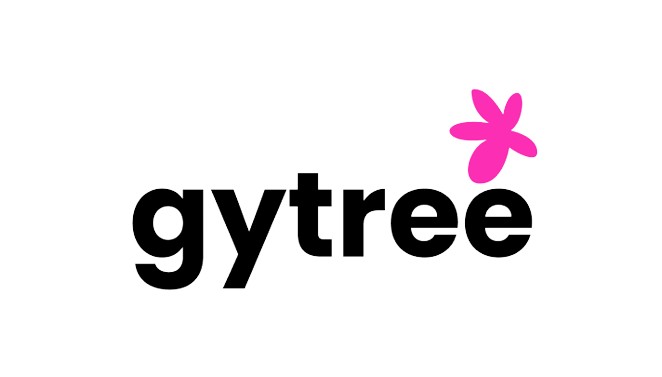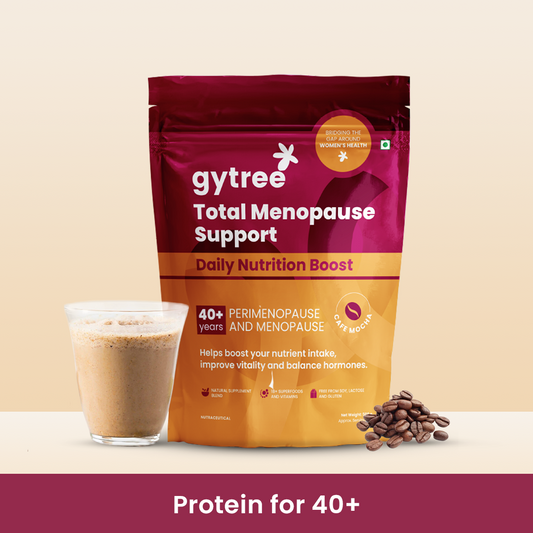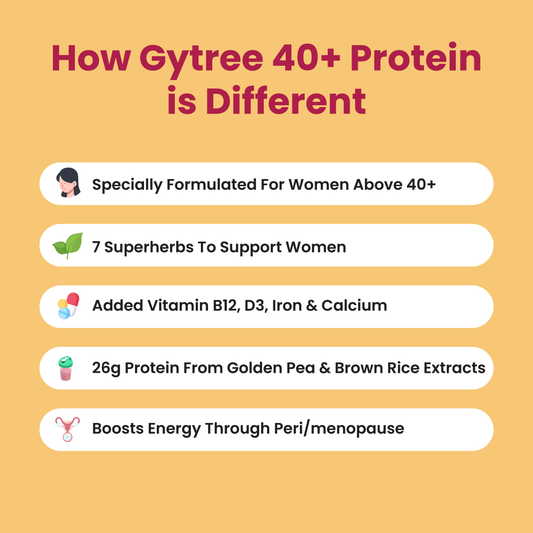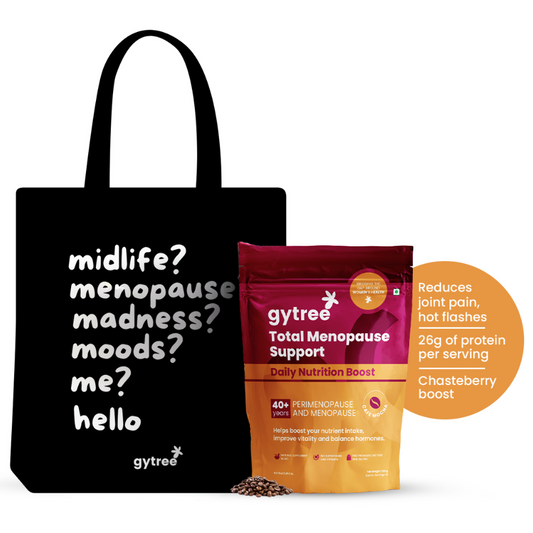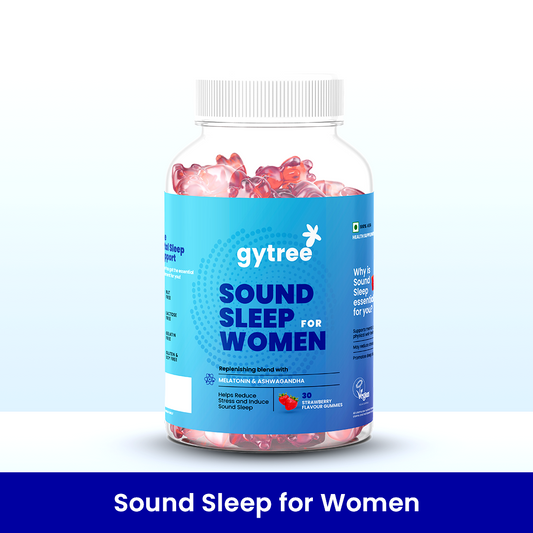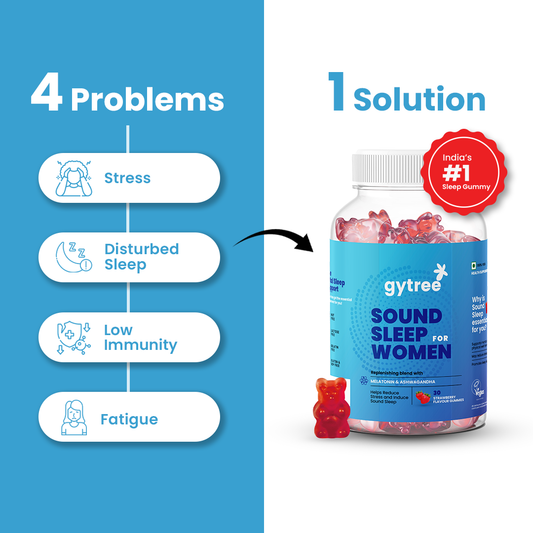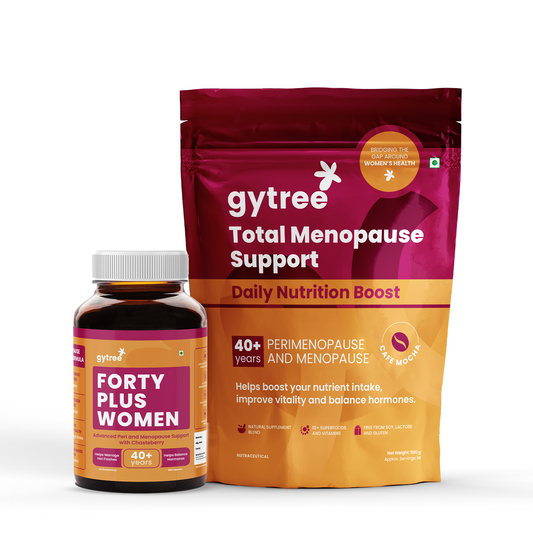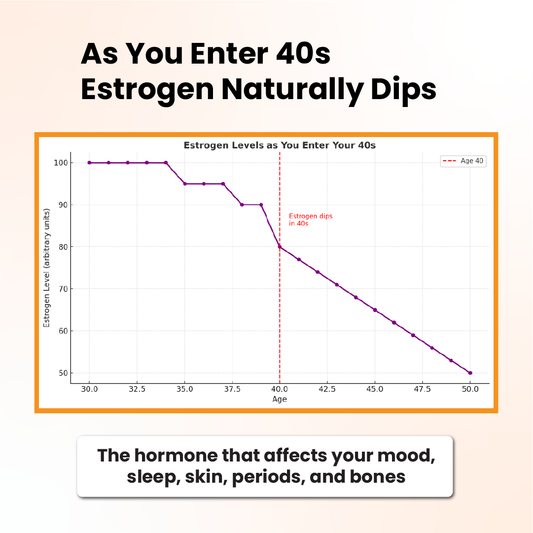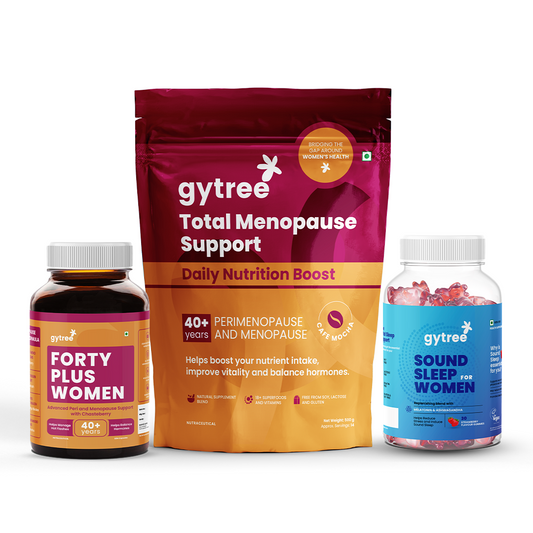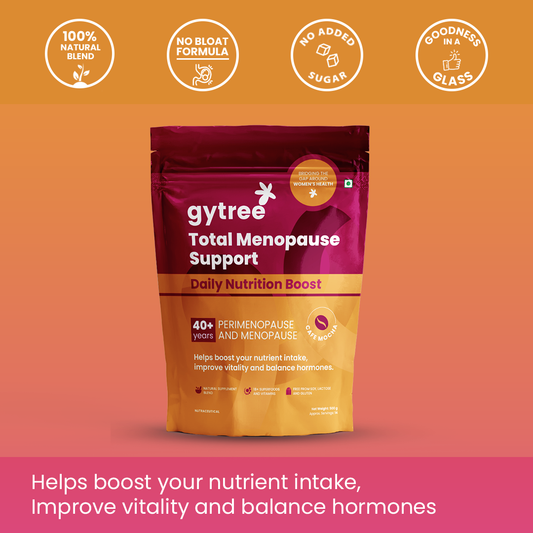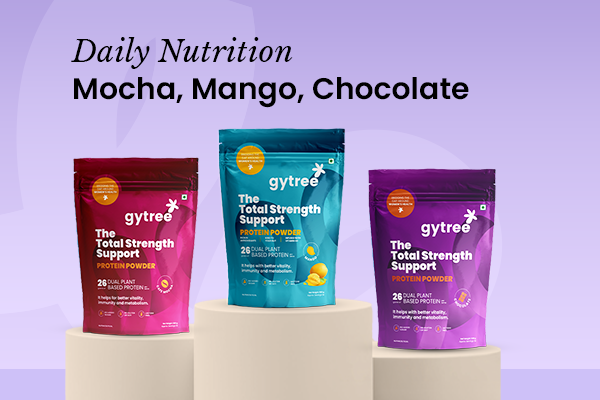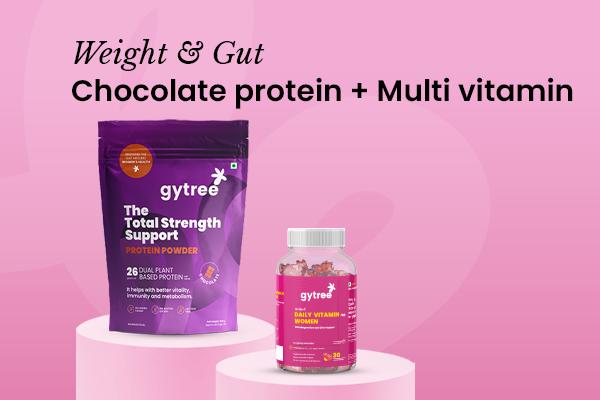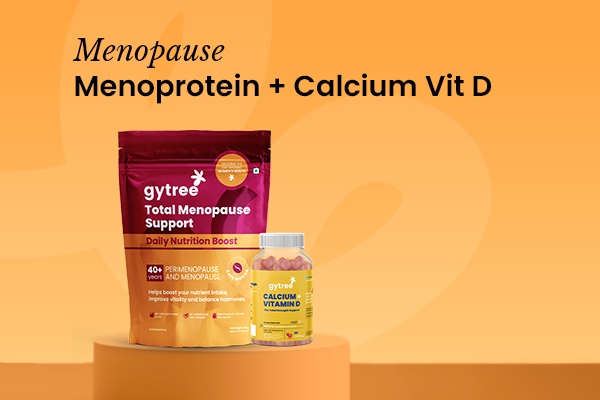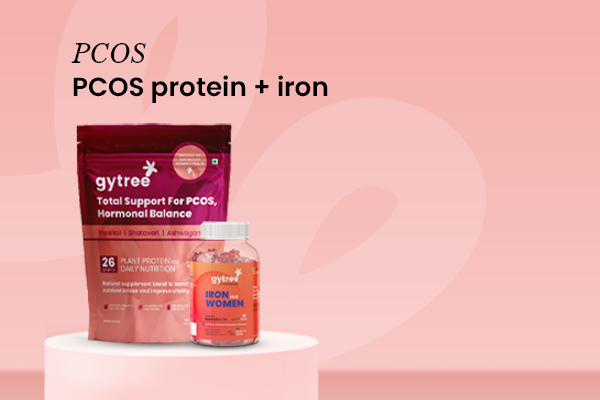Menopause total strength solutions
Gytree health coaches are trained in midlife health, so they understand the “why” behind everything from peri and menopause and weight gain to insomnia and energy crashes.
Join 20,000+ community that trusts Gytree with peri and menopause care.
-
The Total Strength Support Plant Protein for Menopause
Regular price Rs. 1,999.00Regular priceUnit price perRs. 2,045.00Sale price Rs. 1,999.00★ 11k+ bought it ★
Sale -
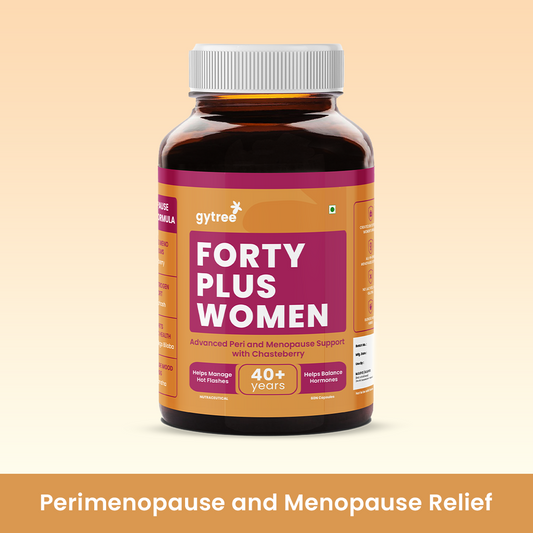
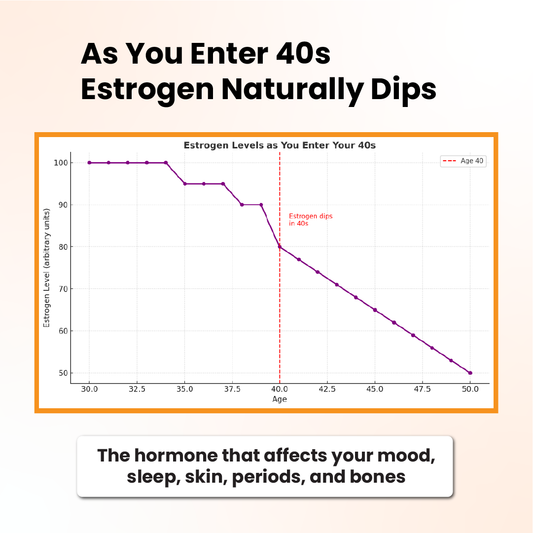 Bestseller
BestsellerGytree Forty Plus Women
Regular price Rs. 599.00Regular priceUnit price perRs. 889.00Sale price Rs. 599.00★ 7k+ bought it ★
Sale -
India's first Peri/Menopause Protein for 40+ Women
Regular price Rs. 4,999.00Regular priceUnit price per★ 5k+ bought it ★
-
The Total Sound Sleep Gummies
Regular price Rs. 666.00Regular priceUnit price per★ 4k+ bought it ★
-
The Total Strength Support for Forty Plus Women
Regular price Rs. 2,598.00Regular priceUnit price perRs. 2,933.00Sale price Rs. 2,598.00★ 11k+ bought it ★
Sale -
The Total Menopause Strength Solution
Regular price Rs. 3,287.00Regular priceUnit price perRs. 3,599.00Sale price Rs. 3,287.00★ 11k+ bought it ★
Sale
Find the right solution that works for you
80% Improvement in Three Weeks
Protein is the biggest source of energy for pre menopausal and menopausal women.
As an actor, mother and a woman, Nanditha realised how protein could help her power through this transitionary phase. Instead of letting menopause control her, she wanted to control her own journey.
Real customers, real reviews
Get total solutions
We don't speak for ourselves. Our customers do.
FAQ
Frequently asked questions
As women age, they tend to lose muscle mass, especially during menopause due to the decline in estrogen. Protein is essential for maintaining muscle strength, bone health, and metabolic function. Adequate protein intake can help mitigate these losses and support overall vitality.
Yes, plant protein sources such as lentils, chickpeas, quinoa, tofu, and hemp seeds provide essential amino acids, vitamins, and minerals. When combined properly, plant-based proteins can meet a woman’s daily needs for muscle maintenance, energy, and overall health during menopause.
The general recommendation for protein intake is about 0.8–1.0 grams per kilogram of body weight per day. For women in menopause, aiming for the higher end of this range, around 20-30 grams of protein per meal, can help maintain muscle mass and promote satiety. You may always check with your physicians or consult Gytree's nutritionist to get specific custom advise for your own body.
Yes, during menopause, certain vitamins are particularly important:
Vitamin D: Supports bone health and calcium absorption, helping to prevent osteoporosis.
Vitamin B12: Vital for energy production and cognitive health, especially since absorption may decrease with age.
Vitamin E: Acts as an antioxidant and may help reduce symptoms like hot flashes.
Vitamin K: Helps with bone health by promoting calcium regulation.
Gytree's proteins come fortified with these and much more to give you holistic nutrition. Our gummies also are focussed on Calcium + Vitamin D, multivitamins, Iron and more.
A plant-based diet rich in calcium from sources like leafy greens (kale, broccoli), fortified plant protein, combined with adequate vitamin D intake, can help maintain bone health. Vitamin K from green vegetables also plays a role in bone formation and preventing bone loss.
Iron needs decrease after menopause, but it's still important for energy and preventing anemia. Plant-based sources of iron include plant based proteins and at Gytree we even offer SunActive based Iron Gummies.
While a well-planned plant-based diet can provide most nutrients, some women may need supplements, particularly for vitamin B12, vitamin D, and Calcium.
Plant proteins are typically lower in calories and fat compared to animal proteins, making them beneficial for weight management. The fiber content in plant-based foods also promotes fullness, which can help control appetite and prevent weight gain, a common concern during menopause.
Some plant-based diets, especially those rich in soy (which contains phytoestrogens), have been linked to a reduction in menopausal symptoms like hot flashes. Additionally, protein from plants helps stabilize blood sugar levels, potentially reducing fatigue and boosting energy throughout the day.
